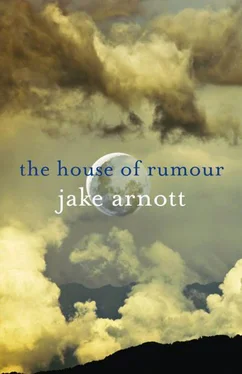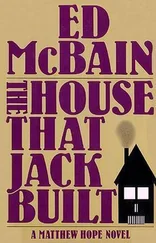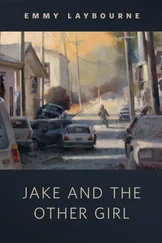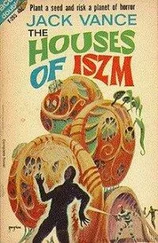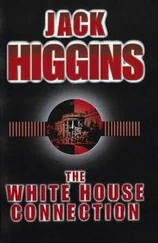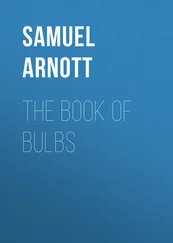‘I could see a friend.’
‘Someone in the Circle? Forget it. It’s too dangerous.’
‘No. He’s not even connected.’
I was thinking of Kurt, that I should warn him. When I explained to Nebula he sighed.
‘Be quick about it, then. And make sure nobody else sees you.’
It was still early so I decided that the best thing to do was to lie in wait for Kurt as he left his apartment to go to the university. There was a wild look about his eyes when he saw that it was me coming after him.
‘Hans!’
I put a finger to my mouth.
‘Keep quiet, Kurt. Please.’
‘I didn’t know what happened to you,’ he whispered.
‘Quick. We need to find a place to talk.’
‘Then come back to my place. Mother and Father have already left for work.’
I sat on the couch in the living room as Kurt brewed tea and made toast in the kitchen. I tried to relax, but my whole body seemed twisted up from my night on the floor. I stood up and stretched. I caught my reflection in a gilt-framed looking-glass over the mantelpiece. My face was ashen, one side of my hair flattened into an absurd crest. Kurt entered and, laying the breakfast things down, came to stand next to me in front of the mirror.
‘Dear Hans,’ he said, putting an arm around me. ‘Try not to look so gloomy.’
‘I came to warn you, Kurt.’
I told him about the Mühlbergers and that I was leaving the country. I didn’t say where I was going.
‘Yes. You take action bravely. But what does your other self do?’
He pointed to the image in the glass.
‘There is a magic mirror in Prester John’s enchanted kingdom, in which distant objects and events appear. Other realities, too, so we see what might have happened. Here we all are, after all. The four of us together. You and me and me and you.’
Kurt let out a peculiar giggle. Dizzy with fatigue and hunger, I turned to look at him. There was an absent quality in his gaze; his eyes seemed to focus on something beyond.
‘Whatever we do as one person, it is as though all of us have done it. Do you think that paradise can really exist on earth, like the communists say?’
‘I don’t know, Kurt. You must be careful how you talk about things.’
I sat down and took a sip of tea. I began to devour the toast. I was ravenous.
‘I know now what the Emperor card meant, Hans. It was a sign.’
‘You really must forget about all that now,’ I mumbled through a mouthful of bread.
‘It is the token of earthly power,’ he went on. ‘We must render unto Caesar what is Caesar’s. In this life.’
I had soon finished off my little breakfast. I fell back against the softness of the couch and let out a long yawn.
‘In our other life,’ Kurt continued, ‘we render to God what is God’s.’
I rested my head and closed my eyes. I just needed a short nap. Then I’d be ready. As I drifted off Kurt came over and gently stroked my brow.
‘Yes,’ he said softly. ‘Rest. Sleep. Sleep and have your dreams.’
I was in the court of Barbarossa, paying homage to the great Emperor. A scribe was reading out a list from Prester John’s letter, a bestiary of exotic species: hippopotami, crocodiles, methagallinnari, camethernis, thinsiretae, panthers, aurochs, white and red lions, silent cicadas, wild men, horned men, fauns, satyrs, pigmies, giants whose height is forty cubits, one-eyed men, a bird that is called the phoenix, and almost all kinds of animals that are under heaven. Barbarossa pointed down at me, demanding to know what kind of creature I was. ‘He is with the Red Orchestra, sire,’ it was announced. The Emperor stroked his crimson beard thoughtfully. Then he looked at his hand in horror. It was covered in blood.
I came to with a start, that sensation of a sudden fall. I knew at once that something was wrong. Footfalls in the hallway, muffled voices. Kurt was saying something hushed and urgent. As I stood up he came into the room. Behind him was Inspector Glockner, the Gestapo officer I had met at the Mühlbergers’.
I called out Kurt’s name.
‘I’m sorry, Hans. But you did warn me.’
‘What?’
‘When you talked of the People’s Court, the guillotine. I couldn’t let that happen to us. They said they wouldn’t punish me, Hans. If I told them all I knew. It’ll be the same for you. They promised.’
‘It’s true, young man,’ said Glockner. ‘Work for us like he has. It’s the only way.’
I looked at Kurt.
‘You informed on the Mühlbergers?’
‘At first I was just scared out of my wits. Then I realised that by betraying them here I would be setting them free in the other world. I’m just a puppet after all, Hans. But we have to go all the way. Through the whole world and all its secrets. Know everything. Tell everything. Absolute understanding. Maybe the way to heaven is through hell. And there we’ll find the back entrance to paradise.’
I let Kurt approach me. As he came close I grabbed him by the front of his shirt and pushed him hard. He fell back against Glockner and in a tangle they toppled to the floor. I turned and made for the French windows that led out onto the balcony.
So these are my last thoughts. I’m on the ledge. Glockner approaches, a look of professional concern on his face. For a moment I imagine that I see something more: true compassion in those sad eyes of his. I remember the words of the song that I played for him.
‘Be sensible,’ he implores me. ‘Please. You’re a young soul, led astray by degenerates. Listen to your friend and save yourself.’
But I know too much. My thoughts are dangerous to others. I entrust them to you, witness from the future. Take care of my memory.
Five storeys up, I conjure thoughts of escape, of being lifted up somehow. An aria. The soul, which yearns for those heights, dreads to take its dark and awful flight. The evening star might point the way. But I think of the fallen blossom in the park. A brief shoot of life, of youth, of death. That is enough, surely. In a moment it will all be over.
The Mañana Literary Society. There was an impressive group of writers at the Heinleins’ house in Laurel Canyon on that fateful night when Mary-Lou and I attended. Jack Williamson, my great idol, shy and diffident in person; Leigh Brackett, one of the few women writing SF back then and a great inspiration for Mary-Lou; Cleve Cartmill, a newspaperman crippled with polio who had just started writing for Astounding ; Anthony Boucher, who was more of a mystery writer; and L. Ron Hubbard, a prodigious all-rounder of the pulps who, it was said, could write two thousand words an hour without revisions. Looking back, I’m liable to put aside the sense of how star-struck I was in the presence of all this talent. I even tend conveniently to forget the miserable way (for me at least) the evening eventually concluded. Now I’m inclined to remember it as the first time I ever met Nemesio Carvajal.
He was a young and very earnest Latin-American science fiction writer who had just come from Mexico. He had contacts with the radical circle that Heinlein was still part of in those days. Tony Boucher was fluent in Spanish and able to translate for us but I recall Nemesio Carvajal as having pretty good working English even then.
‘Nemesio?’ L. Ron Hubbard asked when they were introduced. ‘That’s a hell of a name, kid. But then you Latinos have a bit of a flair when it comes to baptism, don’t you? You know the joke? If Jesus is Jewish, how come he’s got a Mexican name?’
‘Well, you’re one to talk,’ Heinlein interjected. ‘Isn’t your first name Lafayette?’
‘Yeah.’ Hubbard sighed. ‘That’s why I use Ron.’
Glasses were poured of cheap white sherry, which I soon discovered was the propulsion fuel for those evenings. A toast was proposed.
Читать дальше
